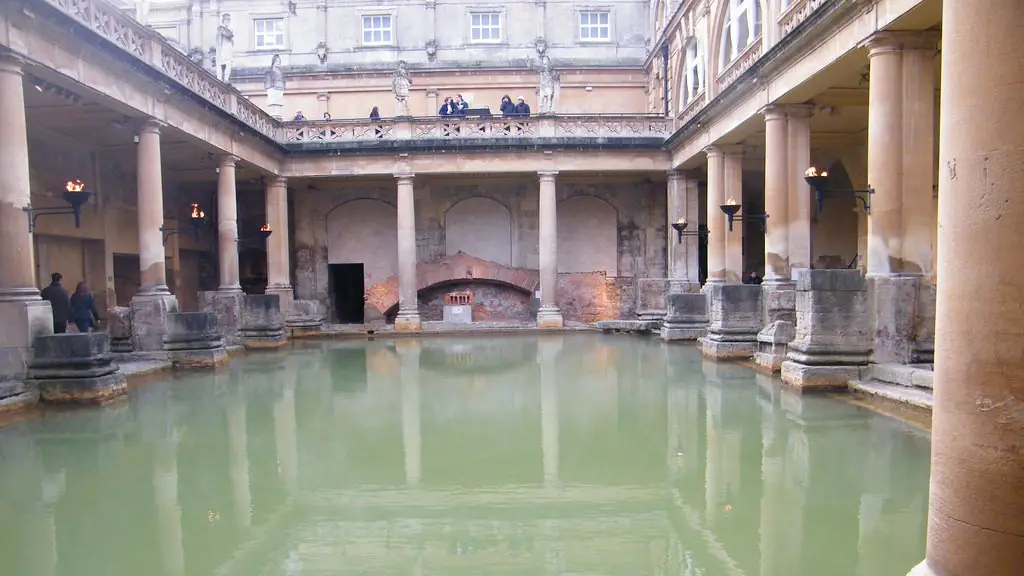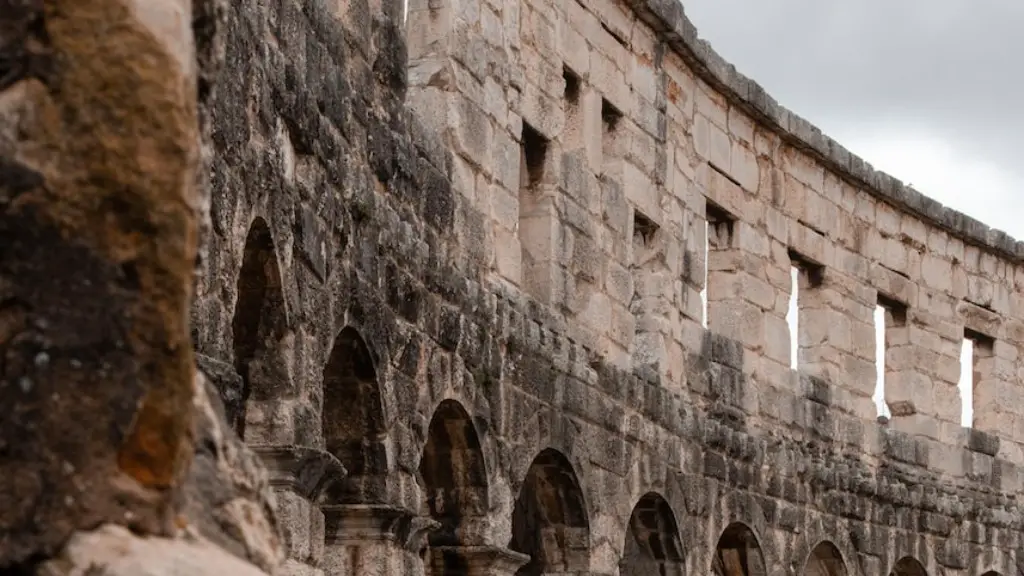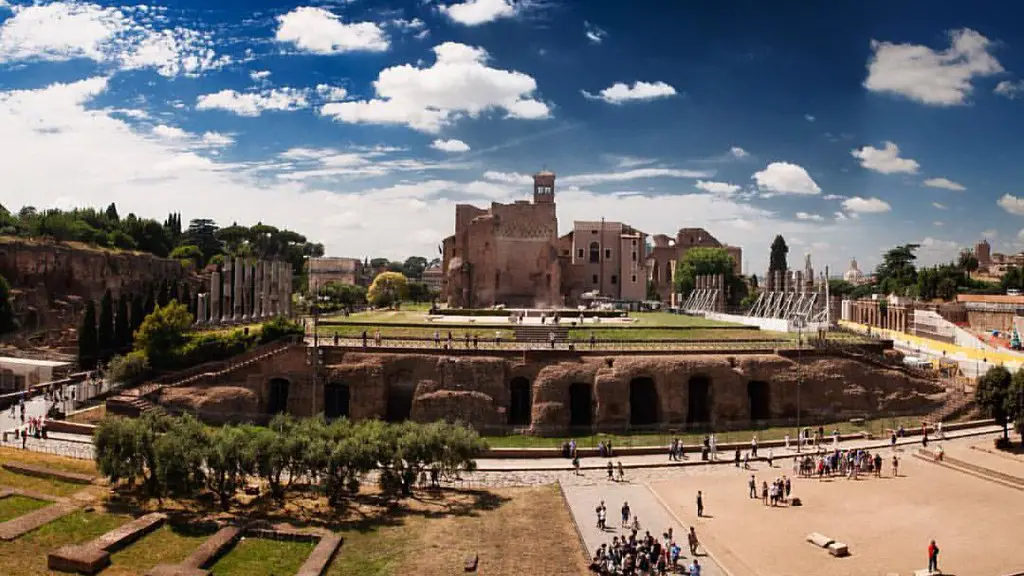Five Key Players in Ancient Rome War Decisions
Ancient Rome was one of the greatest empires in history. It was also a powerful military force and its wars were fought by legions of soldiers and with clever diplomatic gambits. But who were the people who made the decision to declare war in Ancient Rome? There were five key players who each play a role in the decision-making process.
The Senate
At the top of the Ancient Roman hierarchy was the Senate. This body comprised of a small group of elite citizens who wielded significant power. The Senate had final say in any decision that affected the Empire. This included decisions to wage war, although they sought advice on the issue from other key players.
The Senate was comprised of a number of different offices, some of which had veto power over the other offices. This meant that in order for a war to be declared, certain leaders in the Senate had to agree. It was a complicated and lengthy process, meaning that Ancient Rome often delayed entering into war until all factors had been considered and debated.
The People
The Roman people also played a role in deciding whether to declare war. All citizens had the right to vote on issues affecting the Empire. This included war decisions, in which the people would express their opinion on whether to declare war or not. In the event that the Senate wanted to declare war, it still had to pass a vote with the people.
In some cases, the Roman people were able to make a decision directly by proposing resolutions to the Senate. This meant that the people’s voices were listened to and could influence the Senators to take a certain course of action.
The Tribunes
The Tribunes were a group of elected officials who served as representatives of the people. They had the authority to veto any decision made by the Senate and could propose their own resolutions. This gave them significant power in any decision-making process, including whether to declare war or not.
In some cases, the Tribunes were able to put forth resolutions which had the potential to alter the Senate’s decision on whether to go to war or not. This meant that the Tribunes could prevent the Senate from making a decision that the people disagreed with.
The Magistrates
The Magistrates were the highest-ranking civil officials in Ancient Rome. They were appointed by the Senate and had the authority to make decisions on their own. This included decisions on war, in which the Magistrates could decide whether to declare war or not.
The Magistrates usually relied on the advice of the Senate and the Tribunes before making any decisions. However, they had the power to make their own decisions, and it was not uncommon for them to ignore the advice of the Senate and the Tribunes.
The Generals
The Generals were responsible for leading the Roman military. They had a great deal of influence over any decision to declare war, as it was their responsibility to execute a war and to ensure that the Roman army was prepared for battle.
The Generals had the right to suggest and advise the Senate on any war decision, and their views were often taken into consideration by the other key players. The Generals had a significant amount of power in deciding whether to declare war, particularly if they had strong views and could convince the Senate and the Tribunes of the pressing need to go to war.
The Process of Declaring War
The decision to declare war in Ancient Rome was a complicated process that often involved multiple players. The Senate, the people, the Tribunes and the Magistrates were all key players in the decision-making process. They would vote, debate and debate until reaching an agreement about whether or not to declare war.
The Generals also had a role to play, as they would advise the Senate and give their opinions on the matter. The Generals would also recruit soldiers and ensure that the army was ready for battle, if war was declared.
The debate over whether to declare war often lasted for a long time, as all the players had their own opinions and voices which had to be heard and taken into consideration. Ultimately, it was the Senate which had the final say, but their decision was always reached after deliberation and debate with all the other key players.
The Consequences of Declaring War
Declaring war in Ancient Rome brought with it both costs and benefits. It was a costly endeavor, with the potential to cause significant damage to the Roman Empire. There was also the risk of defeat, since Ancient Rome’s military was not always victorious in battle.
On the other hand, declaring war also offered the potential for reward. Victories over an enemy state could bring great resources and expansion to the empire, while successful diplomatic gambits could help maintain the status quo.
Ultimately, Ancient Rome usually declared war when it deemed it to be beneficial. This could be in response to threats from other states, or in order to gain resources or territory. However, the decision was always taken very seriously, and only declared after careful consideration.
The Impact of War on Ancient Rome
The wars fought by Ancient Rome had a significant impact on the empire. In some cases, wars brought great wealth and power to the empire, while in others it brought devastation and loss.
The wars also had an impact on the population. Soldiers and civilians alike were affected, with some successfully resisting the enemy, and others suffering great losses. The emotional and physical toll of war was devastating, and there were many tragedies associated with war in Ancient Rome.
The political landscape of Ancient Rome was also significantly impacted by war. Successes on the battlefield could bring security and stability, while defeats could lead to political upheavals and unrest. This meant that war decisions were always taken very seriously, and only declared when the potential benefits outweighed the risks.
The Legacy of Ancient Rome War Decisions
War decisions in Ancient Rome continue to have a legacy today. Many of the same players involved in the decision-making process, such as the Senate and the people, still exist, and the principles of war decision-making remain relevant.
The impact of these decisions also still resonates. The successes and failures of war decisions still shape the political and social landscape of the world, and the same complex processes that took place in Ancient Rome still exist today.
The decisions made by the Ancient Romans continue to serve as a lesson to those making war decisions today. In this way, the legacy of Ancient Rome’s war decisions will continue to influence the decisions of future generations.
The Benefits of War in Ancient Rome
The wars fought by Ancient Rome had the potential to bring great benefits to the empire. Victories in battle could bring resources, power and prestige, all important elements in shaping the future of the empire.
The wars could also bring cultural and social benefits to the empire. Expansion of the empire through war could bring new customs, knowledge and technologies, all of which could help the Romans become more enlightened and progressive.
The success of war could also improve the economy, with battlefield victories bringing with them resources and spoils of war. This could help strengthen the Roman economy, making it more prosperous and secure.
The Drawbacks of War in Ancient Rome
It is important to remember that the wars in Ancient Rome did not always bring success and prosperity. There were always risks associated with declaring war, with the potential for failure and devastating consequences.
The costs of war could be immense, with resources, money and manpower being wasted on fruitless pursuits. The psychological and physical toll of war was also very significant, with citizens and soldiers both suffering greatly.
The political landscape of Ancient Rome could also be significantly impacted by war. Defeats could result in political upheaval and turmoil, with drastic changes to the power structures in the empire.
The Strategies Used in Ancient Rome’s Wars
Ancient Rome used a number of different strategies to wage war. Most of these strategies were designed to reduce the risk of failure and maximize the chances of success.
The most common strategy was to use a combination of military force, diplomatic gambits and negotiation. This allowed the Romans to minimize their losses and maximize their gains, while also minimizing the risk of a major defeat.
The Romans also used guerilla tactics to great effect, such as ambushing enemy forces and launching surprise attacks. This allowed them to weaken an enemy force and inflict severe losses without risking a full-scale battle.
The Romans also used naval strategies to their advantage, using their navy to blockade enemy forces or launch surprise attacks. This allowed them to win battles without having to risk sending soldiers into heavy combat.
The Enduring Legacy of Ancient Rome’s Wars
The wars fought by Ancient Rome still have an impact today. The same strategies used by the Romans to win battles can still be employed today, and the lessons of war decision-making are still relevant.
The legacy of Ancient Rome’s wars is also still visible in the political and social landscape of the world today. Successes and failures in war still have a major impact on the power structures in the world, and Ancient Rome’s legacy can still be seen in the decisions of today’s leaders.
The legacy of Ancient Rome’s wars will continue to influence the decisions of future generations. The lessons learnt from the war decisions of Ancient Rome still serve as a cautionary tale to those who wish to wage war today.



